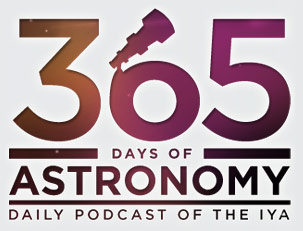Mariners, Cancer, and Bombs (NEW PODCAST) April 27, 2010
Posted by jcconwell in Astronomy, physics, Podcast.Tags: Astronomy, physics, Podcast
add a comment
Description: Part of the reason for doing fundmental research — say sending spacecraft to Mars, or building particle colliders — is that we never know what we’ll discover or what the applications will be.
Bio: Ben Lillie is a physicist who left the ivory tower for the wilds of New York’s theater district, where he hosts the monthly science storytelling show, The Story Collider. He likes to say that life is different now, largely because it is. He has also earned 27 badges as a member of the Order of the Science Scouts of Exemplary Repute and Above Average Physique, which is 24 more than than the number of badges he earned as a Cub Scout.
http://365daysofastronomy.org/2010/04/26/april-26th-mariners-cancer-and-bombs/
Nobel Prize Winner’s Lecture to Explore ‘Why Can’t Time Run Backwards?’ April 16, 2010
Posted by jcconwell in physics.Tags: EIU, physics, Sir Anthony Leggett
add a comment
The winner of the 2003 Nobel Prize in Physics will present “Why Can’t Time Run Backwards?” on Friday, April 16, at Eastern Illinois University.
Sir Anthony Leggett, a physics professor at the University of Illinois at Urbana-Champaign, will speak at 7 p.m. in the Doudna Fine Arts Center’s Lecture Hall. Admission is free, and the public is invited.
“We can all tell when a movie of some everyday event, such as a kettle boiling or a glass shattering, is run backwards,” Leggett said in describing his topic. “Similarly, we all feel that we can remember the past and affect the future, not vice versa.
“So there is a very clear ‘arrow’ (direction) of time built into our interpretation of our everyday experience. Yet the fundamental microscopic laws of physics, be they classical or quantum-mechanical, look exactly the same if the direction of time is reversed.
“So what is the origin of the ‘arrow’ of time? This is one of the deepest questions in physics; I will review some relevant considerations, but do not pretend to give a complete answer.”
Leggett will also discuss the process of winning the Nobel Prize. While he won’t delve into the science behind his prize-winning work in superfluidity, he will discuss some of his classical training and how that related to his discoveries and innovations.
The event is sponsored by the Society of Physics Students and the Philosophy Club at EIU.



